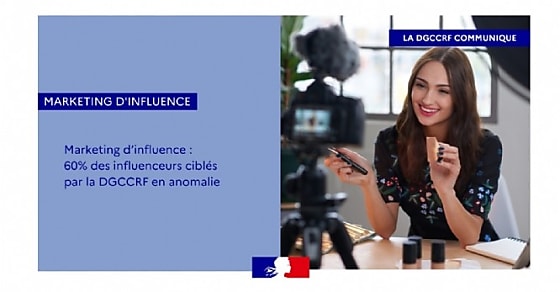Still in an experimental stage for most of the companies concerned, neither the metaverse activity nor the marketing of NFT is revolutionizing the sales professions for the moment. But business opportunities appear.
An astronomical sum. 5,000 billion dollars could be generated by the metaverse in the world according to the McKinsey company. This concept of meta-universe that appears today above all as “a communication and marketing lever hides many other business opportunities”, notes Vincent Chamouleau, head of research at Xerfi Group in a recent study (1).
It has identified more than 135 projects, attests to this and indicates three main use cases: the production of marketing campaigns, the commercialization of virtual elements and more marginal services (online recruitment sessions, for example).
Concepts to be defined
Beyond the promise of Eden, new playgrounds, innovative sales support tools and new types of commercial exchanges, Frédéric Cavazza, consultant and teacher of digital transformation, deems it necessary to clarify some definitions. ” LAnd Web3 is a decentralized organization from an IT point of view, via blockchain, and from an organizational point of view, with shared governance, with the aim of offering an alternative to marketplaces and aggregators such as GAFAM “, he advances.
On this point, our expert does not see how the Web3 might be of interest to sales managers, except to remunerate their teams with NFTs (non-fungible tokens), which seems unlikely. For him, ” the three concepts – Web3, metaverse (immersive media) and NFT – have only a few areas of overlap”.
Community sale
The sale of NFTs could still turn out to be juicy, however. Nike would have reached 185 million dollars in revenue thanks to its collections according to data from Dune Analytics communicated last summer. “If the sale of NFTs it requires human intervention, it is based more on a community dimension, enthusiasts recognize a value in an object and encourage its purchase”summarizes Frédéric Cavazza.
A lot of work is done upstream to lay the foundation for storytelling and promise, it is provided by community leaders, a kind of augmented community manager. Decathlon embarked on the adventure this spring by marketing a new range of sneakers, Kipsta Barrio, featuring Séan Garnier, world champion and three-time French freestyle football champion. Each shoe is associated with a NFTs in the form of a “golden ticket” and gives access to personalized and exclusive experiences with the world champion.
Elle Decoration magazine (n°300) has launched a collection of NFTs, combined with the creation of real decorative objects, and has called on Lamarck, organization and transformation consultant to assist its teams, from framing to production, mixing management of the project and technology. “The investors who bought NFTs are not part of the magazine’s readership, rather they are art connoisseurs and members of the tech ecosystem.” observes Célia Tiev, project manager of Hanzo, a subsidiary of Lamarck, dedicated to blockchain uses. The industry is in its infancy. The branding side prevails over the achievement of turnover.
Transactions take place through platforms (Decentraland, The Sandbox) whose audience is limited to a small target. NFTs are based on smart contracts, smart contracts that automatically execute on a Blockchain. And acquire an unfalsifiable character. “Luxury brands are interested in issuing certificates of authenticity and facilitating resale on the secondary market“, assures Réda Aboutika, chief analyst of XTB France, trading platform.
Seller avatar
” Land(s) metaversethese immersive universes where avatars have virtual experiences within persistent environments, cover different uses “, indicates Frédéric Cavazza. Online games, virtual shop presenting no less virtual products, real estate, culture, training… the metaverse(s) seem to attract many brands.
Not all sectors show the same level of maturity according to the Xerfi study: the luxury and music industries have taken a step forward with the commercialization of virtual concerts and clothing. Just like the game. “The reports of important research companies after the arrival of the metaverse show that e-commerce will renew the customer experience and will offer the sale of virtual, mixed and real objects, internet users will no longer be in front of the offer, but inside” notes Bertrand Wolff, CEO of Antilogy, a consultancy for virtual reality and the metaverse.
Virtual shops open their doors and brands invest in real estate lots… a trend that risks being slowed down by the context of the real estate crisis in metaverse.
As the industry begins to take shape, many questions remain. “E-commerce sites are equipped with bots to support Internet users, in a virtual shop customers will have to be welcomed, but will sellers be able to work in the form of avatars? ” asks Bertrand Wolff.
In what legal framework? And what business practices? “In the metaverse the size of the retail space varies depending on traffic and time of day, in the real world no sign changes concept in a snap of a finger, but a virtual space can adapt“, he continues.
Finally, the management of the sales force could be partially transformed. Online recruiting sessions or office layouts are tested. ” Virtual training already exists, especially with conversational agents to coach sales forces, implement sales scenarios and handle objections, but in the metaversesimulations could be more realistic and avatar behavior more sophisticated “Frédéric Cavazza projects. One more step ?
(1) “Metavers: analysis of potential and impacts for sectors and companies”, Xerfi Precepta (August 2022).








Comments
Post a Comment